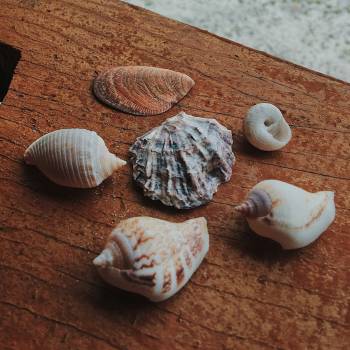There was a YouTube video that I watched recently, about a sheikh who was conducting a halaqah in Al-Masjid An-Nabawi. Suddenly someone came and repeatedly interrupted the sheikh, talking over him while he was trying to teach. But the sheikh didn’t get agitated or angry. Didn’t say “Do you know who I am?” Didn’t rebuke or shame the questioner. Rather the sheikh smiled and basically responded that his question would be answered in due time.
Subhana Allah. That’s husnul-khuluq. Do you know that husnul-khuluq (beautiful character) is an act of worship? Just like how we feel we're in a state of worship to Allah subhanahu wa ta'ala when we stand in salah, or reading the Qur'an, we're also in a state of worship when we practice husnul-khuluq. It is not merely just a “good deed”, but an excellent ‘ibadah in the Sight of Allah subhanahu wa ta'ala. Consider this important hadith where Rasulullah salla Allahu ‘alayhi wa sallam (ﷺ) said:
البر حسن الخلق
“Al-Birr (righteousness) is husnul-khuluq.”
[Sahih Muslim 2553a]
Reading this hadith would make one wonder: there are so many good virtues in the shari’ah, so why did Rasulullah ﷺ specifically mention that righteousness is husnul-khuluq? He ﷺ also said something similar in another hadith:
"Hajj is ‘Arafah."
[At-Tirmidhi 2975 | Graded Sahih by Darussalam]
That sounds strange, right? Wuquf in ‘Arafah is only one of the pillars of Hajj. But when Rasulullah ﷺ said that “Hajj is ‘Arafah”, it therefore means that wuquf in ‘Arafah is the essence of Hajj. Similarly, husnul-khuluq is the essence of righteousness! This shows that having good akhlaq is really an outstanding form of virtue in the Sight of Allah subhanahu wa ta'ala. Rasulullah ﷺ said:
"Nothing is heavier on the believer's scale on the Day of Judgment than good character."
[At-Tirmidhi 2002 | Graded Sahih by Darussalam]
On the Day of Judgement, one's good character will make his scale of good deeds heavy, and there is nothing else that will make the scale heavier than it!
It’s really important to mention here that husnul-khuluq must be accompanied by sincere intention. When we practice good akhlaq, our intention must be for the sake of Allah, and not because we want to be praised by others. Some people portray themselves with good character for fame and recognition, but the focus of a true believer is always on the ridha, and reward from Allah subhanahu wa ta'ala. Our intention is always in need of rectifications.
When you think about it, husnul-khuluq is actually a form of ‘ibadah that takes up a lot of time from us. Most of our lives are spent dealing with people. We are always interacting with someone - our spouse, parents, children, neighbours, colleagues, the drivers on the road, the people on the internet, and so on. So if our akhlaq was good and noble in each of those interactions, then we were actually in a state of ‘ibadah to Allah and reaping its reward during that whole time! This is one of the most amazing aspects about having husnul-khuluq - a person with beautiful character gains reward continuously from Allah subhanahu wa ta'ala while interacting with others. Perhaps this is one of the reasons why Rasulullah ﷺ said:
“By his good character, a believer will attain the degree of one who prays during the night and fasts during the day.”
[Sunan Abi Dawud 4798 | Graded Sahih by Al-Albani]
This hadith speaks volume about the immense virtues of husnul-khuluq. Qiyamul-layl (the voluntary night prayer) and voluntary fasting are two ‘ibadah that are beloved to Allah, and there are numerous ahadith that mention their great virtues. However, even if a person of husnul-khuluq does not pray Qiyamul-layl or fast voluntarily in the day, he will still attain the same degree of those who regularly pray Qiyamul-layl and do voluntary fasting - Ma Shaa Allah! Imagine how much more Allah elevates a person of husnul-khuluq who also prays Qiyamul-layl and does voluntary fasting regularly!
Sheikh Ibn Taymiyyah wrote that Imam Al-Hassan Al-Basri (may Allah have Rahmah on both of them) said that husnul-khuluq has three pillars:
(1) Badhlul-nada - Generosity.
A person of husnul-khuluq will find it easy to do good for others, and this is done according to one’s capability - whether with his wealth, his knowledge and advice, his time, his strength or energy, and so on. While it is indeed praiseworthy to extend help on a larger scale - such as helping to pay off a significant sum of someone’s debt, helping to build a masjid, taking care of the orphans, and so on - good actions that tend to be insignificant in the eyes of society are just as praiseworthy as well. Consider this hadith where Rasulullah ﷺ said:
“Iman has over seventy branches - or over sixty branches - the uppermost of which is the declaration 'None has the right to be worshipped but Allah', and the least of which is the removal of harmful object from the road.”
[Riyadh As-Saliheen 125 (Sahih Al-Bukhari & Sahih Muslim)]
Rasulullah ﷺ also said:
“A person while walking along the path saw the branches of a tree lying there. He said: ‘By Allah, I shall remove these from this (path), so that these may not bring harm to the Muslims’, and he was admitted to Jannah.”
[Sahih Muslim 1914c]
Sometimes, it is the least appreciated, the most unglamorous good deed that elevates a person to a high standing in the Sight of Allah. So never underestimate a good deed, even though it seems trivial and petty in the eyes of people. What matters is our sincerity to Allah, adherence to the Sunnah, and wanting good for others.
(2) Kafful-adha - Refraining from harming others.
Rasulullah ﷺ was asked: “Which of the Muslims is the most virtuous?” He ﷺ said: “The one whom the Muslims are safe from his tongue and his hand.”
[At-Tirmidhi 2504 | Graded Sahih by Darussalam]
A person with husnul-khuluq does not harm others - whether it be physically, emotionally, or mentally. He doesn’t hurt and annoy people with his words and actions - he is not sarcastic, doesn’t use callous words, doesn’t backbite, doesn’t insult, and there are many other examples regarding this. Be vigilant on how we treat or interact with people, and always strive to use good words in our dealing with others. Rasulullah ﷺ said:
“A good word is charity.”
[Sahih Al-Bukhari 2989]
(3) Talaqatul-wajh - Cheerfulness.
Rasulullah ﷺ said: “Every good is charity. Indeed, among the good is to meet your brother with a smiling face.”
[At-Tirmidhi 1970 | Graded Sahih by Darussalam]
Jarir ibn Abdullah said: “I would never see him (i.e. Rasulullah ﷺ) but with a smile on his face.”
[Sahih Muslim 2475]
Rasulullah ﷺ, the beloved of Allah subhanahu wa ta'ala, would still smile to the people, and was approachable by anyone regardless of their background or economic status. People should find peace and feel at ease when approaching us. Some people reserve their smile and friendliness only for their own cliques, the rich, or the affluent. If we find it hard to smile to others, to the poor, to children, then we really need to check the state of our hearts, because it could be our arrogance that makes us stop short from dealing kindly with others.
Husnul-khuluq truly needs to be cultivated. Some people are blessed by Allah subhanahu wa ta'ala with beautiful character, but for many of us - and I speak about myself - our ‘default’ character constantly needs tweaking and rectification. It’s indeed a lifetime project, yet one that is heavily rewarded. A person should strive to cultivate husnul-khuluq so that he meets Allah subhanahu wa ta'ala in the most excellent condition. And Rasulullah ﷺ said:
"Indeed the most beloved among you to me, and the nearest to sit with me on the Day of Judgment is the best of you in character."
[At-Tirmidhi 2018 | Graded Hasan by Darussalam]
May Allah grant us husnul-khuluq, protect us from bad character, and make us among those who will be the nearest to Rasulullah ﷺ in the highest level of Jannah, Aameen.
— Aida Msr 🌸
_________
References:
- Kitab Al-Iman, by Sheikh Ibn Taymiyyah rahimahullah
- Sunnah.com
 Aida Masuri Mustafa
Aida Masuri Mustafa 







Ira Syatira
Aida Masuri Mustafa